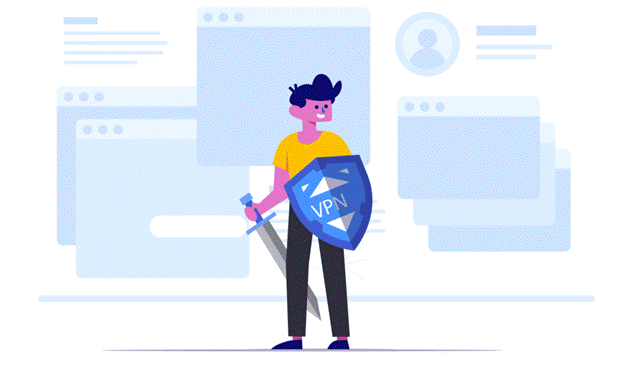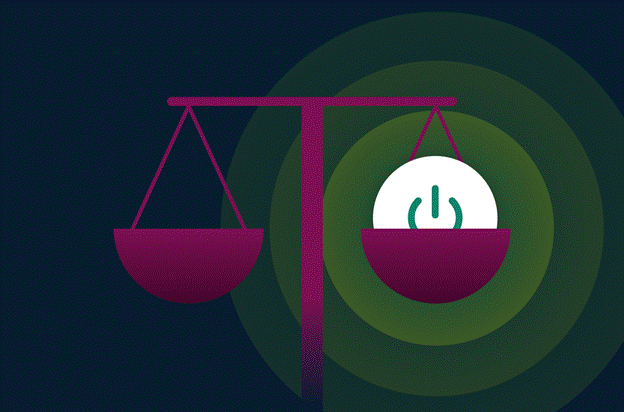Virtual private networks, or VPNs, make a digital connection between your computer and a remote server run by a VPN service. You can sidestep website blocks and firewalls on the web by creating a point-to-point tunnel that protects your personal data, masks your IP address, and encrypts your data. You won’t have to worry about privacy or security online. But are vpns legal? Due to their utility in preserving individual privacy, they are often the subject of legal disputes, frequently resulting from regulatory authorities that want complete transparency and total control over internet traffic. Even though VPNs are mostly legal, relying on this technology in some situations could get you in trouble technically. For instance, using a VPN in a prohibited country or engaging in criminal activities while connected to a VPN server could result in severe penalties. In the following sections, we explain is vpn illegal, VPN laws and regulations so you are aware of the legal implication of using such a privacy protection service.
VPN Legality Overview
Are vpns legal? A growing concern about online privacy and government surveillance has led to much debate about the legality of VPNs. Though the answer appears straightforward in some countries, the truth is it’s a complicated and nuanced issue that varies from country to country. In most jurisdictions, VPNs are legal Some countries like the U.S. and the U.K. let you use them for privacy protection and georestricted content. While many countries ban VPNs to control internet access and suppress dissenting voices, many of them ban them as part of a larger effort. To protect national security, Russia passed a law in 2017 requiring all VPNs to be registered. Likewise, the Chinese government has blocked VPN services and prevented citizens from bypassing the Great Firewall.
Even if VPNs are legal in most countries, the activities they’re used for may not. For example, hacking into or downloading copyrighted content may still be illegal using the software. However VPNs are regulated, it is clear that they remain controversial and sensitive issues. Some governments deem them a threat to national security, while others deem them handy tools for protecting online privacy. In general, if we want to answer the question, is vpn illegal, we can categorize countries into three categories: legal, legal with restrictions, and illegal.
Legal
In most countries, Virtual Private Networks are legal, but there are some exceptions and regulations to consider:
North America
A VPN, which stands for virtual private network, is legal and widely used in North America for various reasons, such as accessing geo-blocked content or keeping your online identity secure.
Europe
Although VPNs are legal in most European countries, some regulations are in place to protect data, including the General Data Protection Regulation (GDPR).
Japan and South Korea
Vpn legality varies across the region. For instance, while they are generally legal in countries like Japan
illegal
Various countries globally are prohibiting or heavily restricting VPNs. The following countries are prohibited or restricted from using the service:
Belarus
In Belarus, VPNs are illegal. Since 2015, the Belarusian government has attempted to block technologies that anonymize internet usage, such as Tor, to suppress dissent and restrict free speech. As of 2018, the Belarusian government mandates that internet service providers retain data on user activity for a year and provide it to law enforcement agencies upon request. A number of sophisticated surveillance techniques have also been accused of being used by the authorities to monitor internet traffic, including deep packet inspection (DPI) to detect and block VPN traffic.
China
VPNs are heavily restricted in China, but they are legal. VPN services in this country must adhere to local censorship and backdoor access regulations as well as be licensed and aligned with government regulations. Chinese citizens may have difficulty accessing quality services if a service is blocked because it does not comply with local laws and regulations Some services, such as NordVPN, have obfuscated servers. preventing the Chinese government from detecting that you’re using a VPN. However, the government acknowledges that VPNs are useful for businesses. Therefore, China has reached an equilibrium between eradicating VPNs altogether and allowing government-approved services to be available.
Egypt
VPNs are allowed in Egypt, but content that violates its moral standards is blocked. In the same way that Oman blocks content, the government also blocks VPN services. Due to security concerns, voice-over-internet-protocol (VoIP) applications such as FaceTime, Facebook Messenger, WhatsApp, Skype and Viber are not allowed. Moreover, the government monitors and censors online activity, making it difficult for people to access inappropriate content.
Iraq
Interestingly, Iraq’s poor internet infrastructure means its censorship capabilities are less effective than China’s or North Korea’s. VPNs are illegal in Iraq. The authority has the power to block social media platforms during unrest or school exams. Online content is regulated.
North Korea
It is illegal to use VPNs in North Korea due to strict censorship measures implemented by the North Korean government. Citizens are only allowed access to a state-controlled national intranet called Kwangmyong. Any attempt to bypass VPN restrictions is considered a crime in North Korea. Citizens are not allowed access to outside news sources due to internet censorship. Since North Korean citizens can access blocked content, the government has imposed harsh penalties for those who try to circumvent the system.
Oman
Oman’s government controls Internet service providers closely, requiring ISPs to block content that doesn’t align with the government’s moral standards, such as pornography and drug use, and businesses need explicit government approval to use VPNs, although there is no specific law prohibiting VPN use. In general, the government hacks and eliminates content deemed a threat to national security or public order. Individuals who use VPNs to access restricted content may be fined as much as $1,300.
Russia
Although VPNs are legal in Russia, their use is somewhat limited. All VPN services must comply with a “legal framework” approved by the government. As a consequence, many VPN providers have withdrawn from the Russian market or have implemented measures to comply with government requirements. According to the law, they must also block access to banned sites and online services. The use of VPNs is still common among Russians, even with all these restrictions, because they give them access to restricted news websites and social media platforms about which they are restricted from accessing.
Turkey
A growing number of online activity is being controlled by the Turkish government. In Turkey, VPN providers are technically allowed to operate, but the government is known for blocking content it does not approve of. It has also banned streaming sites as well as file sharing due to intellectual property issues. The government also censors significant news platforms and social media platforms like Facebook, YouTube, Twitter, and Wikipedia.
Turkmenistan
Using a VPN in Turkmenistan is forbidden due to tight government control. Social media services such as Facebook, WhatsApp, Twitter, Viber and famous Russian networks, such as Odnoklassniki and VKontakte, have been banned by the repressive nation. Internet traffic and social media activity are monitored by the government, and individuals are sometimes arrested for writing critical online content. As part of the government’s internet censorship laws, pricing on the internet has also been increased in order to discourage social media usage. Users who are caught breaking these laws may face severe consequences.
UAE
Although VPNs are legal in the United Arab Emirates (UAE), the government heavily regulates them. According to government law, censorship on the internet blocks offensive and harmful content such as pornography and political dissent. According to law, a person who commits a crime using a “fraudulent computer network protocol” may be fined or imprisoned.
why some countries restrict or ban VPNs
When checking is a vpn legal, you should pay attention to why some countries restrict or ban VPNs. Many countries like the UK, USA, Canada, New Zealand, Australia and others allow VPN use however, some countries prohibit VPN use in order to suppress dissenting views. Here are some other reasons why VPNs are banned:
Government censorship
There are times when the government doesn’t want its citizens to have access to certain content, social media platforms, or websites that VPNs enable them to access. In such a case, the government will decline to allow access to these resources.
National security concerns
Because VPNs are used for anonymous and encrypted communication, governments often consider them a security threat and ban them.
Surveillance and control
VPNs complicate the government’s control over and monitoring of online activities, especially since it is impossible to track actions back to the individual user. For this reason, VPNs are usually banned so that officials can have more control over citizens’ online communications and usage.
Legal Use Cases for VPNs

legitimate and legal use cases for VPNs
Use sites while abroad
The VPN is especially useful when doing online banking. If you’ve gone on a weekend trip and forgotten to inform your bank, you might lose access to your account. Just in case your account is blocked, it’s worth flipping on that VPN switch for a moment and virtual heading home to make sure you aren’t left penniless abroad if this occurs.
Take advantage of more live sports
In some countries, sporting events are free to watch, whereas in others they are paid for. Recently, we have found cheaper or even free ways to watch NBA, Super Bowl, Euros, and Olympics with a VPN, so if a big event is on, you may want to check out global broadcast options for better prices.
Increase your online gaming speed
In our experience, poor Internet connections are common, and ISPs often throttle connections of high bandwidth users, such as streamers and gamers. Network throttling ensures that every customer receives the same speeds, and those who use the most bandwidth are penalized. If you notice a lot of fluctuations in speed, you might be a victim. Using a VPN can do just that by anonymously encrypting your traffic, which means your ISP cannot know what you’re doing, and therefore can’t decide to throttle your system as a result.
Secure remote access
The VPN provides secure remote access to company networks and data thereby making it possible for businesses to conduct business remotely and with greater ease.This is particularly useful in an age where remote work and telecommuting are becoming more common.
Network scalability
A VPN server can provide scalability for multiple employees and remote workers simultaneously. In addition to supporting cloud-based applications, the VPN tunnel can provide secure access to cloud-based applications. In order to accommodate more users and provide them with access to the necessary resources, businesses can easily use this scalability.
Avoid bandwidth throttling
You can use a VPN to bypass bandwidth throttling during certain online activities, like streaming and gaming. VPNs ensure a smooth online experience that is unimpeded by these restrictions.
Remote access
The VPN provides secure remote access to company networks and data thereby making it possible for businesses to conduct business remotely and with greater ease.This is particularly useful in an age where remote work and telecommuting are becoming more common.
Recommendations and Best Practices

best practices for using VPNs legally and safely
choosing reputable VPN providers and reading their terms of service
Selecting a reliable VPN provider means choosing one with a good track record of service and one that puts the user first. One of the best ways to evaluate reliability is simply by reviewing the reputation of the provider. It is important to check out reviews by credible technical outlets for the best VPNs for fast and consistent performance. Reviews from actual users (such as in an app store) can also be helpful. To know the legal provisions of your area, it is better to consult a legal advisor in this field.
Security and privacy
In order to provide users with the highest level of security when they spend time online, VPNs were developed. VPNs make your network traffic unreadable to prying eyes, hide your IP address, and make you invisible online. However, it’s not that rare for VPN servers to leak your data when they lose connection. A VPN must have reliable security features and no tolerance for data leakage. It’s important to keep in mind that free VPNs tend to make their money by selling user data to advertisers.
Compared to free VPN providers, paid VPN providers can afford to operate large research and development teams to deliver well-designed and secure services. To ensure privacy and security, choose a VPN that is regularly audited by independent auditors.
Conclusion
In this article, we described the various legal aspects related to the use of VPN and said that VPNs are legal. In the end, we said which countries allow the use of VPN and which countries do not allow it. At the end, we have described some of the most important cases of its permitted use for you. Knowing about the legal issues and its uses will help you to stay away from any problems in this field and not get into trouble when using VPN. You should also research these rules and update them on a daily basis, as they will define your areas of use well. You can refer to our blog for this, because we are constantly explaining these things to you. Also, if you need to download vpn, you can visit esthervpn.com.

